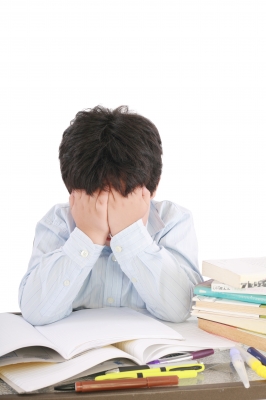1. A child with a psychiatric disorder is damaged for life.
This is absolutely not true. If anything they become better because as a parent or guardian, you have recognized something that they can get treatment for. The goal of treatment is learn to cope effectively so they can handle mental health symptoms as they appear.
2. Psychiatric problems result from personal weakness.
Some mental illness is genetic and some mental illness occurs as a result of difficult situations experienced. Sometimes mental health symptoms appear as weaknesses such as aggressiveness, self-harm, etc when in fact it is what it is - mental illness. Telling children or teenagers to "just stop" or "behave" is not help at all. There needs to be a more personalized treatment in place.
3. Psychiatric disorders result from bad parenting.
Occasionally a child's environment can influence a mental illness but it does not necessarily mean it caused it directly. As mentioned above, there is that element of biology and genetics also involved in the development of a mental illness. Don't blame yourself, instead take the opportunity to be directly involved in treatment and begin to be a part of the solution and change.
4. A child can manage a psychiatric disorder through willpower.
The management of a mental illness or psychiatric disorder is about teaching skills in therapy. Willpower is not one of those skills. If it was that easy, mental illness would not exist. A physical illness requires medication and appropriate care. Mental illness is the exact same way.
5. Therapy for kids is a waste of time.
The most important aspect of therapy is in the relationship between the clinician and the patient. The next most important part is in the technique. Therapy is most often personalized to the client after the therapist decides an an appropriate approach. If you feel like something is not working for you or your children, let the clinician know and they can make a referral to someone else. Therapists want their patients to succeed, not feel that it is a waste of time. Therapy will not be a waste of time if it helps effectively manage mental health symptoms.
6. Children are overmedicated.
Currently I still work in an acute care setting as well as manage an outpatient practice. I can personally attest to the fact that the physicians at the hospital do not use medication first. Medication is another resource and avenue to explore after parents have come in and feel that they have explored other opportunities first. We generally recommend outpatient therapy and learning appropriate skills before turning to medication. Medication is appropriate at times but does not have to be the first option.
7. Children grow out of mental health problems.
The original article said this well, "Children are less likely to grow out of psychiatric disorder than they are to grow into more debilitating conditions." Most people unfortunately do not "grow out" of mental health problems. Some may, but most times mental illness is something that ebbs and flows. It would be more unfortunate for a child to never obtain treatment and learn skills to manage their illness and have worse problems later in life.
Click here for original article.


 RSS Feed
RSS Feed
